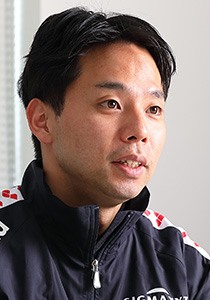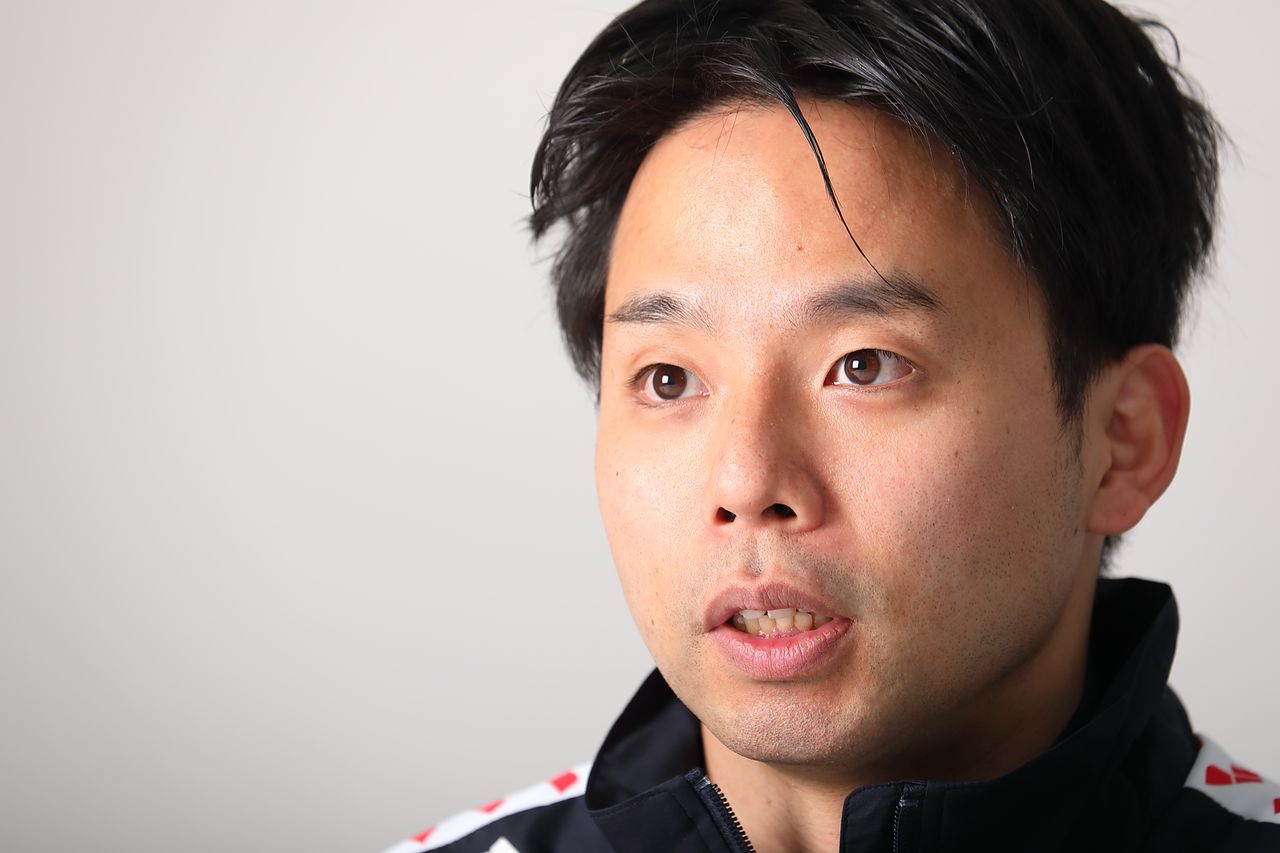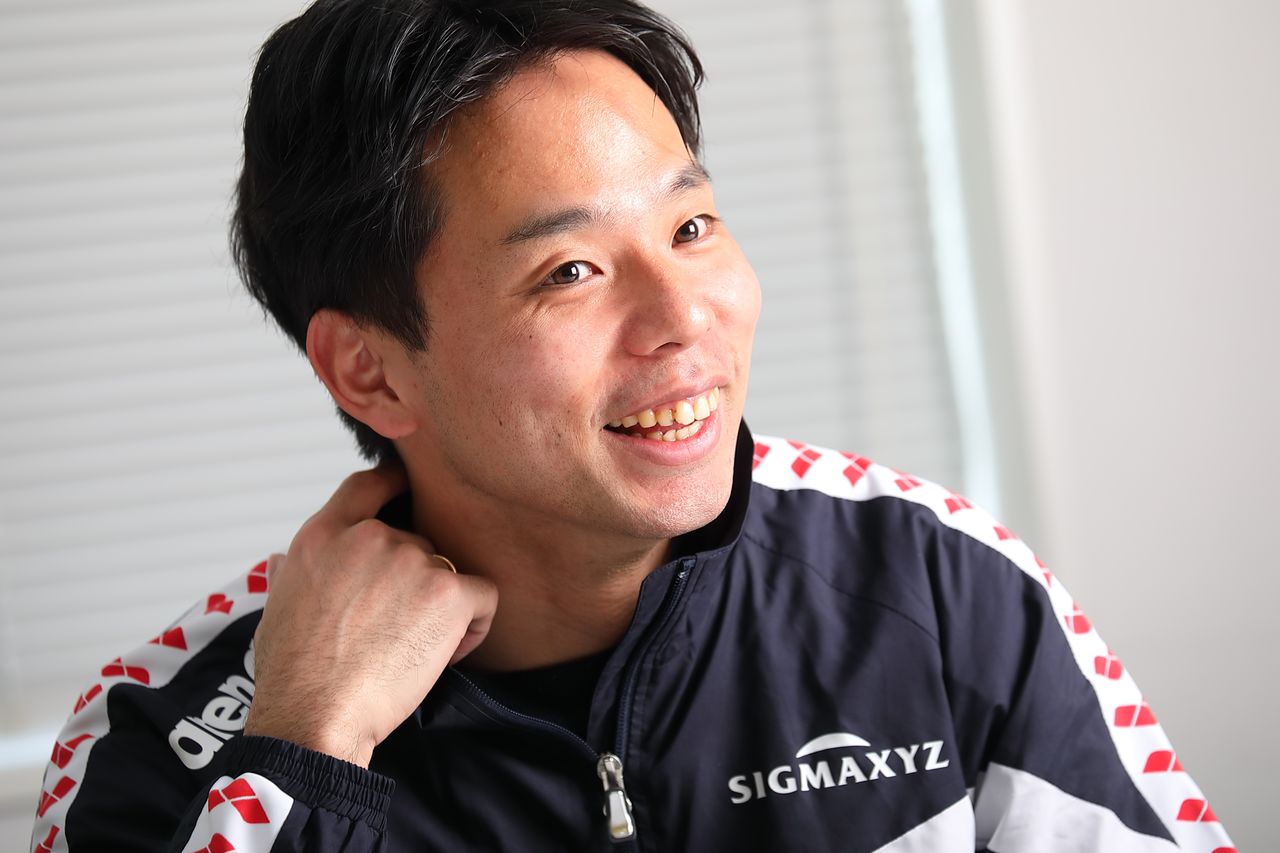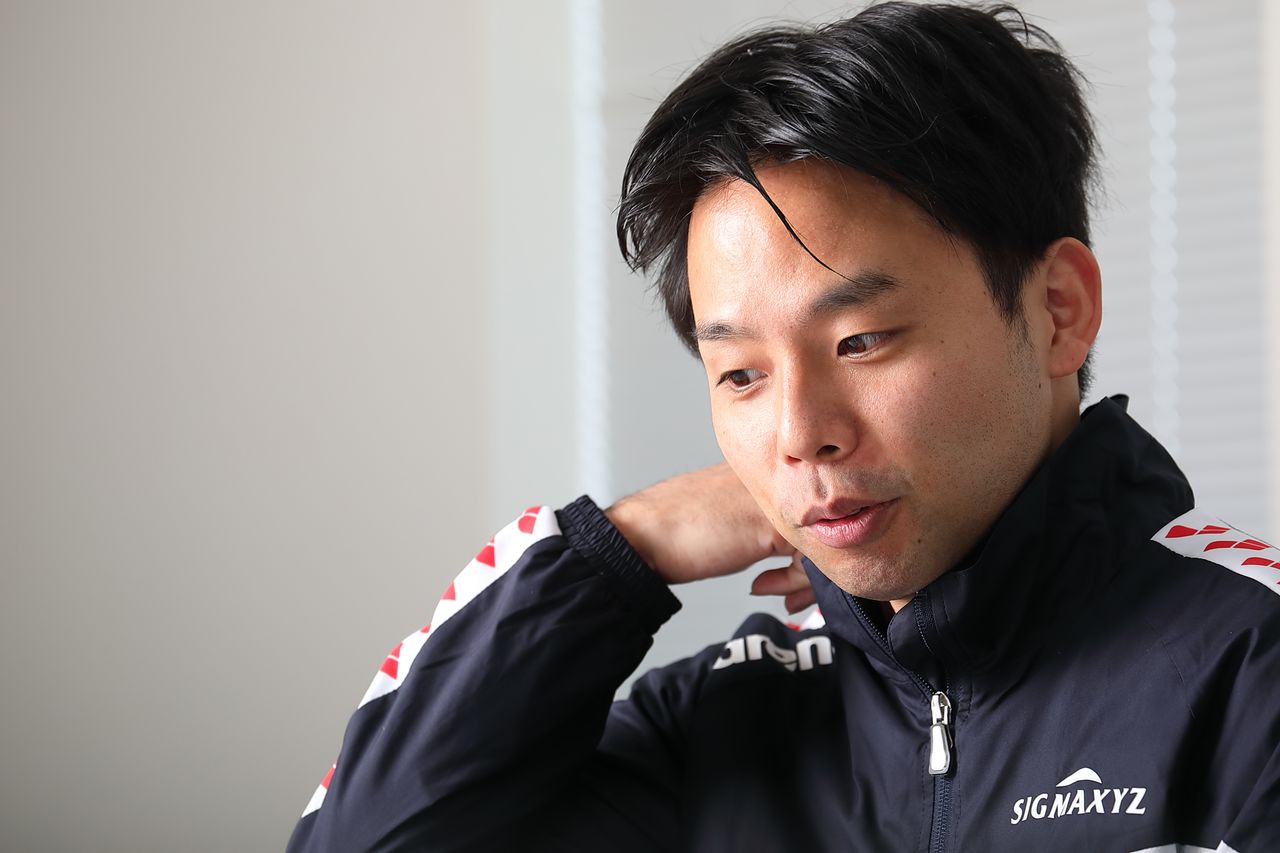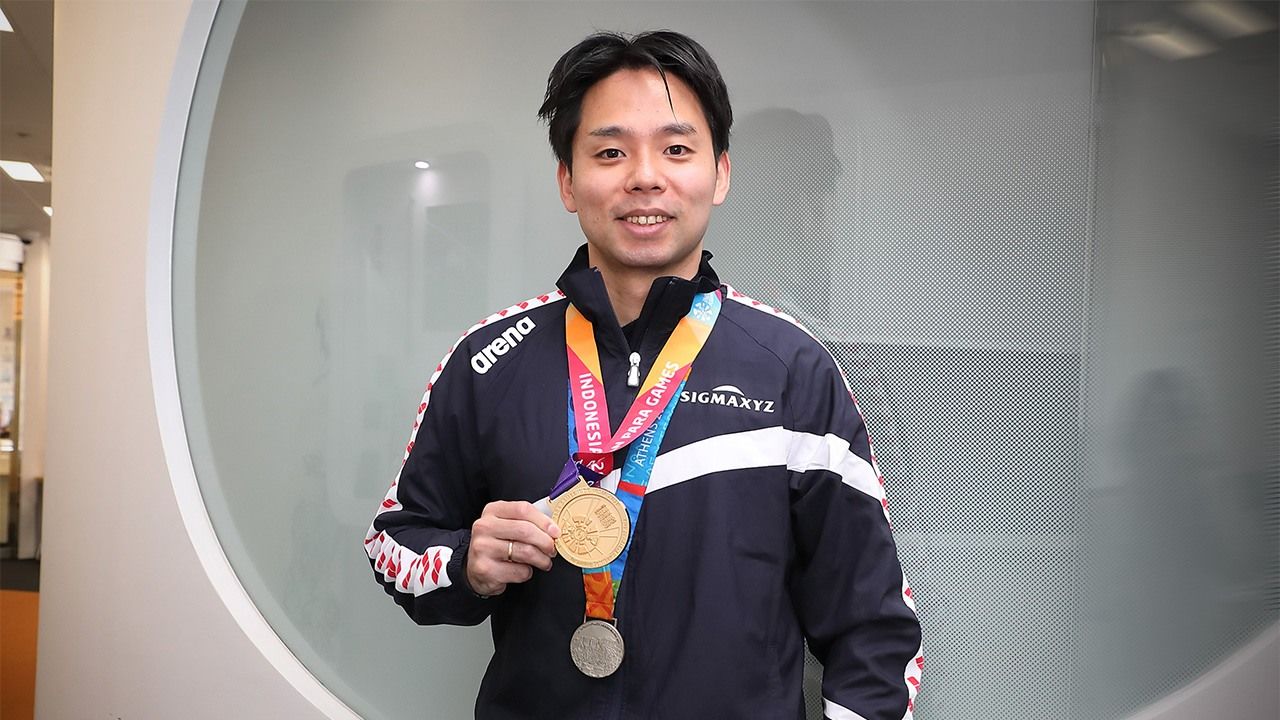
Paralympic Athletes, Up Close and Personal
A Life in Water: Paralympic Swimmer Ejima Daisuke on the Road to the Tokyo Games and Beyond
Sports Society Tokyo 2020- English
- 日本語
- 简体字
- 繁體字
- Français
- Español
- العربية
- Русский
Swimming is a popular pastime in Japan and also one of the nation’s most closely followed Paralympic sports. Japanese paraswimmers have excelled on the world stage, raising hopes for a medal rush when the games are held in Tokyo in 2020. Among team Japan’s deep pool of talent, veteran swimmer Ejima Daisuke stands out as a legend in the water. The three-time Paralympic competitor missed the Rio de Janeiro games in 2016 due to illness, but showed he is back in form with a gold-medal race at the 2018 Asian Para Games in Indonesia. Ejima is looking to keep his winning momentum going into Tokyo next year.
Building Blocks
Ejima has been a competitive swimmer ever since he was a small boy. Growing up he dreamed of making it to the Olympics, but his dream crumbled when in the eighth grade a stroke left him partially paralyzed on his left side. Changing to paraswimming, he has remained focused on being the best in the sport, which for Ejima means winning Paralympic gold. As he trains for the Tokyo games, he says there has been a significant uptick in public interest and support for athletes.
“When I started training nearly two decades ago, I was basically on my own,” he recalls. “Back then people tended to see parasports as a form of rehabilitation rather than serious competition. Committed athletes hardly had any support. I didn’t have a dedicated coach or older swimmers to rely on for advice, so I tried out different ideas and went with what worked.”
Ejima says that as a high schooler he trained alongside the able-bodied members of his school’s swim team and quickly earned a reputation as a fierce competitor. He was tapped for the national team at the age of 16 and travelled with the squad to the 2002 World Championships in Argentina. Competing in the S7(*1) backstroke, a classification that includes athletes with limited leg function or amputations, Ejima quickly learned just how intense competition was at the international level.
“There wasn’t anyone at my level in Japan and I went into the event feeling self-assured,” he explains. “I was mortified when the British swimmer Andrew Lindsay buried me in the 100-meter backstroke final. He finished an unbelievable 15 seconds ahead of me on his way to winning the gold.” It was an earth-shattering defeat.
To add insult to injury, he says he tried to congratulate the swimmer after the race but was met with muffled laughter. With his pride in tatters, Ejima overhauled his training approach with the singular goal of unseating Lindsay. “Without a serious rival in Japan I had struggled to stay motivated, but the race changed all that.”
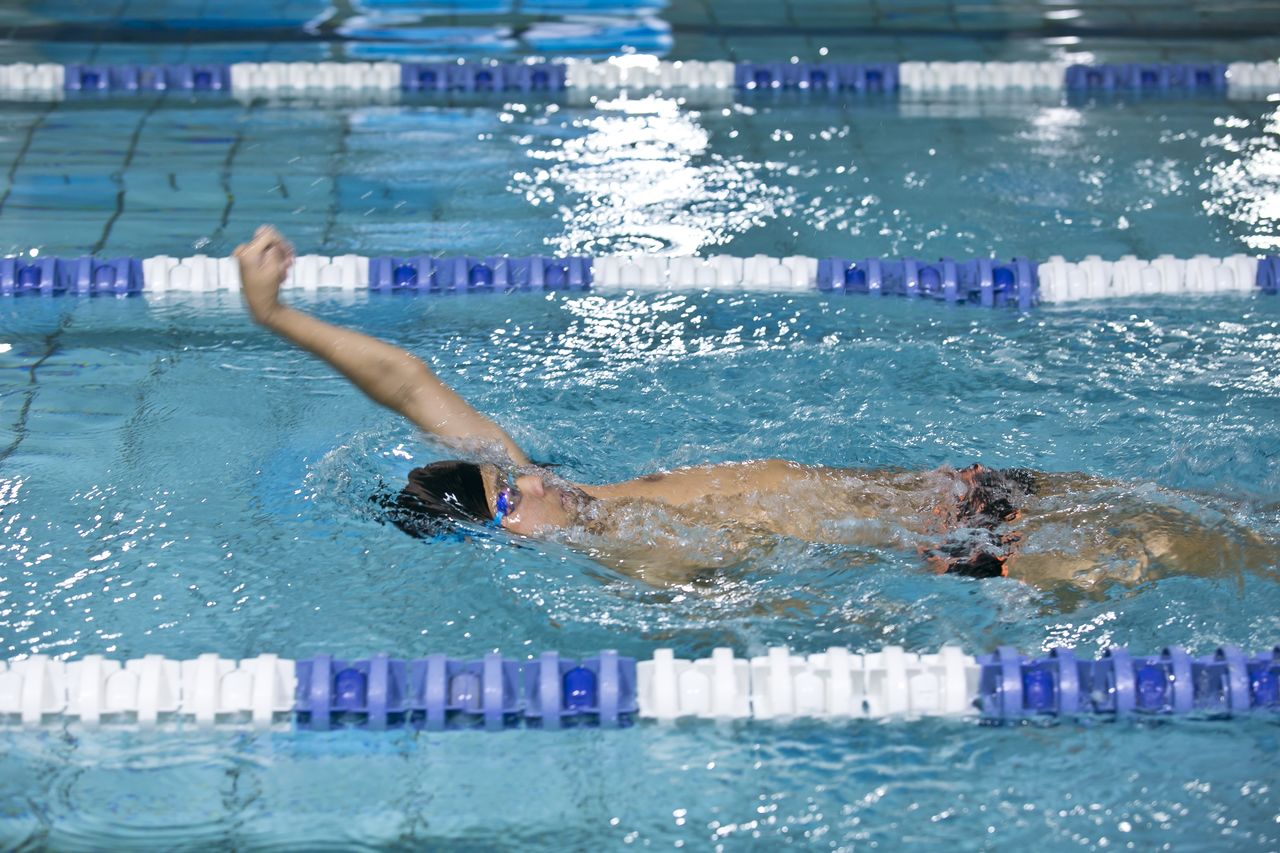
Ejima trains in the backstroke. (Photo courtesy of Sigmaxyz)
Paralympic Debut
Ejima was a college freshman when he first competed at the Paralympic Games in Athens in 2004, where he won silver as part of the 200-meter medley relay team and finished fifth in the 100-meter backstroke.
Although happy about medaling, he says failing to topple Lindsay made for a bittersweet games. “I had trained hard in the two years since the world championships to close the gap, but so had Lindsay. He swam even faster than our race in Argentina and finished 3 seconds ahead of me.”
Undeterred, Ejima continued to whittle away at his time over the next four years and went into the 2008 Beijing Games confident of success. In the final he came in fifth, outdoing Lindsay’s gold-medal time in Athens, but the British swimmer still finished a half second ahead, in fourth place. Dejected, Ejima slumped toward the locker room when he received an unexpected nod from his rival. While being interviewed by the BBC, Lindsay turned his wheelchair toward Ejima and shouted out “Great!”
The gesture helped soothe some of the sting of defeat. “It touched me because it was so unexpected. I had failed to make the medal stand, but this made me even more determined to keep improving.”
Ejima says the 2012 London games provided him a whole new experience as a competitor. The excitement of the Olympics had carried unabated into the Paralympics and was helped along by domestic broadcaster Channel 4’s coverage of the event. Titled Meet the Superhumans, it drew broad attention to para-athletes and the competition. Ejima says Britain lived up to its reputation as the founding nation of the games. “The atmosphere was vibrant,” he recalls. “I came in fifth in the 50-meter butterfly, but the local crowd cheered me like I had won the gold. There was such warmth and affection for all the athletes.”
A Twist of Fate
Ejima, a native of Kyoto, has been a swimmer most of his life—his parents first took him for classes when he was just three. As an older elementary school student he began training to be a competitive swimmer and was progressing along in his young career when in eighth grade a stroke changed the course of his life. He recalls playing baseball with friends one April day after school and then heading to swim practice. When he reached the poolside, though, he suddenly collapsed. The last thing he remembers is riding in the ambulance and thinking that he would skip practice.
“I had no idea what happened,” declares Ejima, who after two days lying unconscious in the hospital woke to find he could not move his left side. “The doctors suspected it was a stroke, but they couldn’t figure out what had triggered it. It would have been different if I’d been in an accident or something, but not knowing the cause made it hard to accept being paralyzed.”
It was a bitter pill for a 13-year-old to swallow. Ejima says he cried nonstop for the first week. “I couldn’t wrap my mind around it,” he exclaims, recalling his shock at being told he would spend the rest of his life in a wheelchair. The doctors had another prognosis, this one more severe. “There was a high chance that another stroke would be fatal. Having to come to terms suddenly with being disabled and possibly dying was overwhelming. All I could do was bawl my eyes out.”
Once the initial shock subsided, though, Ejima started to see his situation in a different light. “I realized that crying wouldn’t change anything and that I was better off focusing my energy on rehabilitation.” He was determined to improve his condition, and with therapy he regained partial use of his left leg.
He returned to his studies later in the school year, and that summer he watched with excitement as Japanese swimmer Narita Mayumi claimed six gold medals at the Sydney Paralympics. Inspired by the feat, Ejima set out to be a para-athlete and continued on to a private high school that had a swim team. When he asked the coach to let him use an open lane of the pool to practice, he was told in no uncertain terms that he was expected to train together with the team.
He says that the attitude of his coach and teammates helped change his outlook as a para-athlete. “I trained and competed like everyone else. Although my times were a lot slower, the feeling that I was somehow different faded, and I stopped using my disability as a crutch.”
Gold-Medal Ambitions
It is a little more than a year until the Tokyo Paralympics, and Ejima is hard at work preparing for the games. Now 33, the veteran swimmer says his motivation has changed from the days when his was trying to top Lindsay on the medal stand. Like Narita before him, he wants his performance to inspire others with disabilities to become involved in sports, particularly swimming. “If you can float, you can swim,” he declares before adding: “I hope I can win a medal and energize people to get into the pool.”
He admits that Tokyo will likely be his Paralympic curtain call, but not the end of his involvement in paraswimming. After hanging up his competitive goggles, he hopes to become involved in training the next generation of swimmers. In the runup to his fourth games, Ejima is giving fans a lot to look forward to.
(Originally published in Japanese. All photographs by Hanai Tomoko unless otherwise noted. Banner photo: Ejima Daisuke shows his 100-meter freestyle gold medal from the 2018 Asian Para Games and silver medal from the 2004 Athens Paralympics.)
(*1) ^ Paralympic swimmers are grouped into 21 classes by physical, visual, or intellectual impairment and numbered 1–10, with a lower number indicating a more severe limitation. The prefix “S” indicates freestyle, backstroke, and butterfly, “SB” breaststroke, and “SM” individual medley.
